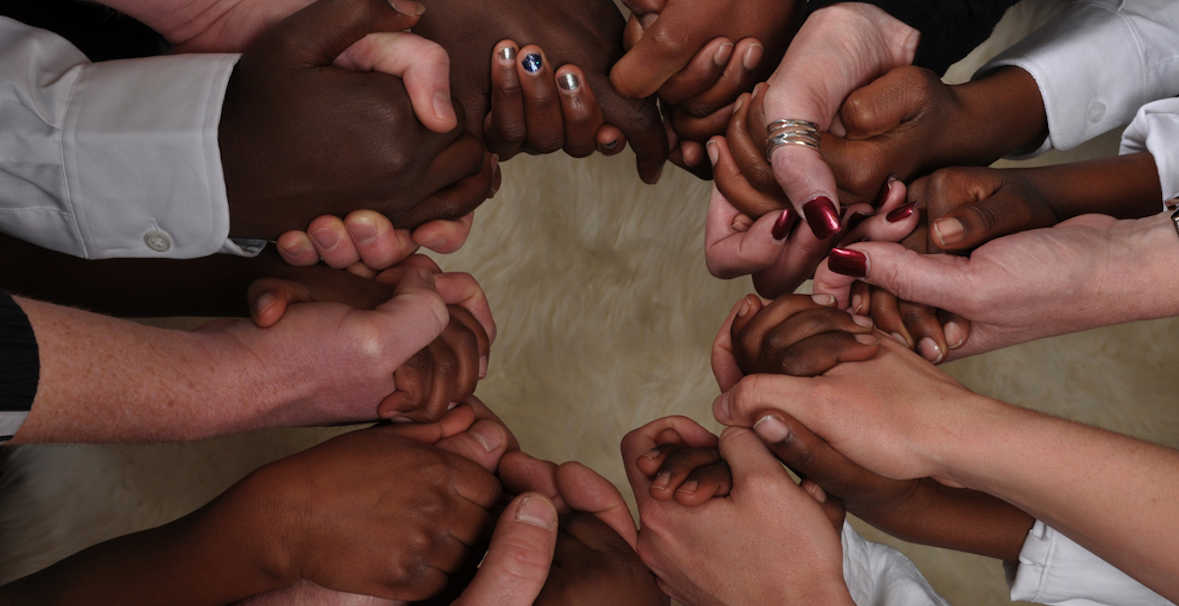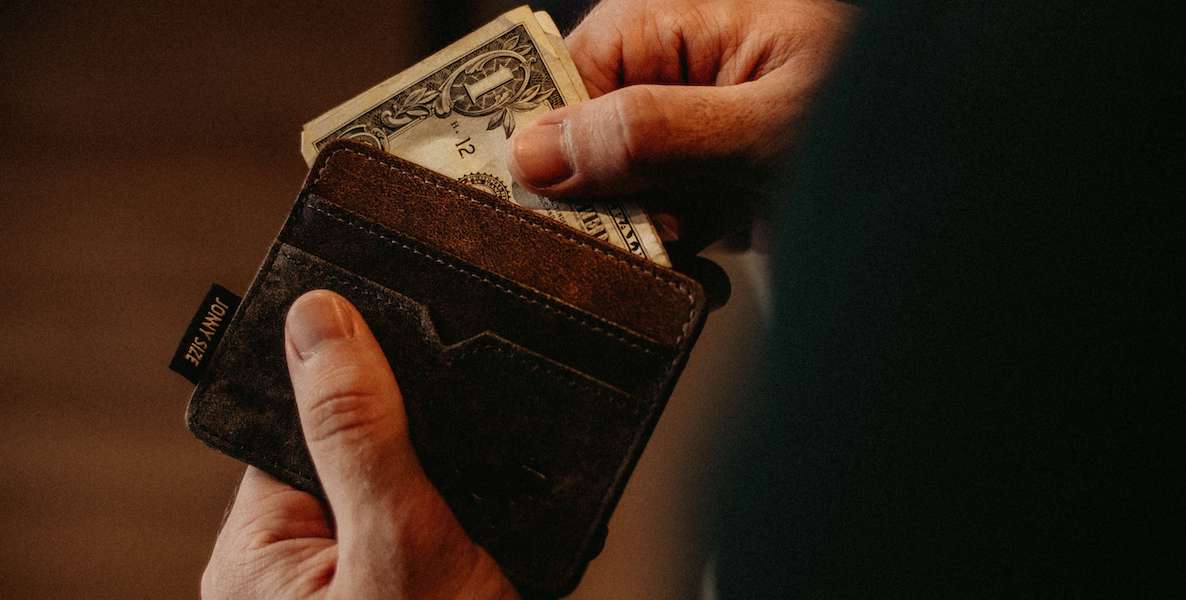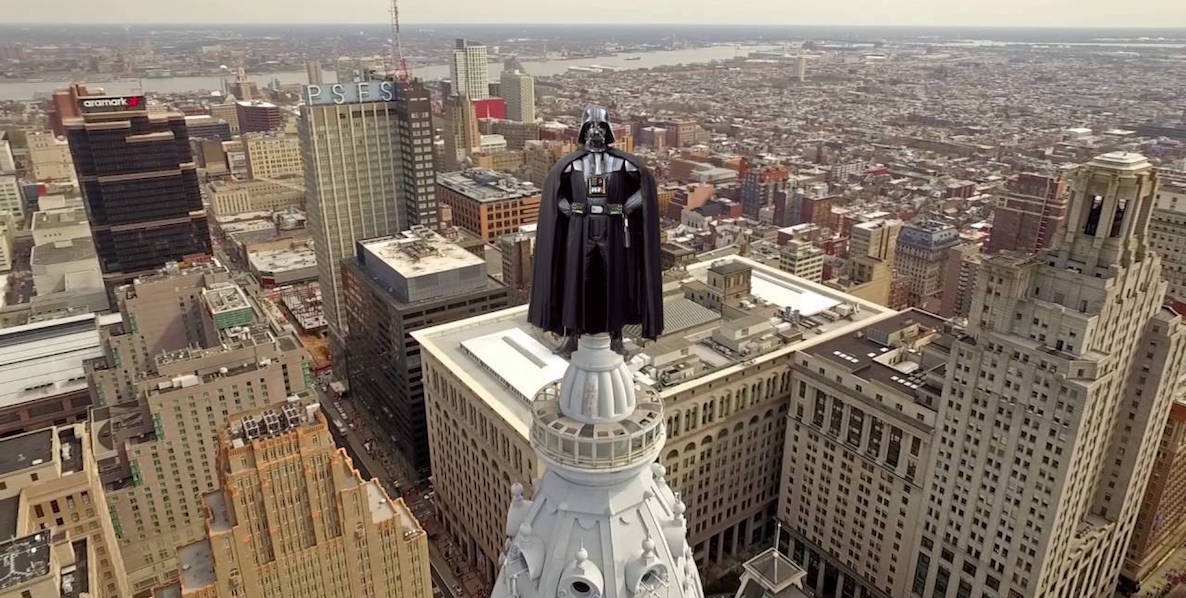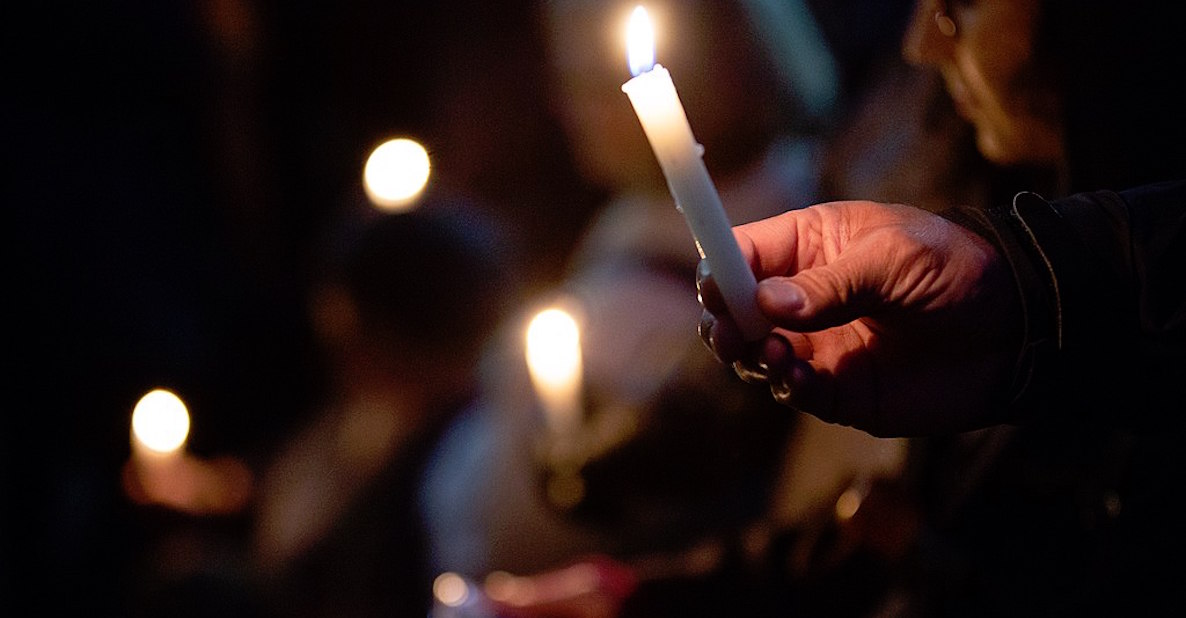In the aftermath of this latest massacre, 11 dead on a Saturday morning inside a Pittsburgh synagogue, we’ve heard the predictable expressions of thoughts and prayers, and the full-throated denunciations of anti-Semitism. That’s no small thing: Acts of anti-Semitism were up 57 percent last year in the United States, and it’s been far worse than that around the globe.
But what happened in the idyllic community of Squirrel Hill in Western Pennsylvania, though an attack on a synagogue, went even beyond anti-Semitism. For it was also an attack—as so many are these days—on the very notion of community itself. After all, the shooter—let’s not name him, media brethren—was a loner, sequestered with his hate in his cyberspace echo chamber. Can it be coincidental, then, that his target was a tight-knit neighborhood’s premier communal space? A man who had no real community—save a virtual one—had declared war on its very notion. On the very idea of the public square, of e pluribus unum: Out of the many, one.
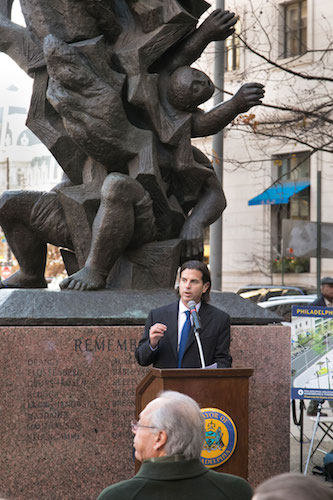
What happened in Pittsburgh should matter to Jew and non-Jew alike for its sheer barbarism, but also because it’s yet another in a series of attacks on shared spaces: Schools, movie theaters, mosques, synagogues. David Adelman knew this instinctively, even before hearing the news from Pittsburgh. Just days before, the 46-year-old CEO of Campus Apartments, had stood before hundreds on the triangular site where Arch Street and the Ben Franklin Parkway meet, unveiling the new Horwitz-Wasserman Holocaust Plaza, for which Adelman had raised $9.5 million. What made this memorial stand out was that it would do more than just commemorate a horrific history.
“We didn’t just want to remember horrible things, but also ask, ‘How can we come together to prevent horrible things from happening in the future?’” Adelman said when I caught up with him earlier this week. “We want this memorial to start a conversation about tolerance. One of the best things we did was to partner with the Shoah Foundation, which Steven Spielberg founded after Schindler’s List to document survivor stories. So you can download an app and hear survivor stories not just from the Holocaust, but from other human rights atrocities, like the genocide in Darfur.”
When the news broke from Pittsburgh on Saturday, Adelman, shaken, began hearing from friends far and wide. The text and calls poured in, especially from non-Jews. They were heartfelt, offering expressions of love and reminders that we’re all in this together. “It really restored my faith.” Adelman says, “that so many non-Jews saw this as an attack on humanity.”
![]()
There’s this lovely Jewish expression for how to live: Tikkun Olam means “repair the world.” Which, when you think of it, is an uplifting prescription no matter where you pray, or if you pray at all. It says that we’re here to finish the work of creation, and it reminds us that the most Godly thing we can do is see ourselves in others. It’s telling, then, that this attack occurred in the late Mr. Rogers’ actual neighborhood, a community that, by all accounts, lived the Tikkun Olam creed. In fact, it’s telling that it happened in Pittsburgh, where, 133 years ago, Judaism’s Reform movement adopted what were then some revolutionary principles.
Reading the Pittsburgh Platform now is to hear a communitarian response to the deranged Pittsburgh shooter, whose posts included such nihilistic rants as “diversity for you but not for Jew” and who was driven to his mad act in protest of the work of the Hebrew Immigrant Aid Society, a refugee-resettlement group:
“We recognize in Judaism a progressive religion, ever striving to be in accord with the postulates of reason,” the Pittsburgh Platform reads. “…Christianity and Islam, being daughter religions of Judaism, we appreciate their providential mission, to aid in the spreading of monotheistic truth…”
Elsewhere, the Pittsburgh Platform talks about extending “the hand of fellowship to all” and calls regulating “the relations between rich and poor” the “great task of modern times.” In 1885, in other words, Jews in Pittsburgh came together to declare what was then a radical mission to repair the world. And it’s that mission that came under attack not only last Saturday, but also in countless ways in a country and world that seems to have gone sideways.
What happened in Pittsburgh should matter to Jew and non-Jew alike for its sheer barbarism, but also because it’s yet another in a series of attacks on shared spaces: Schools, movie theaters, mosques, synagogues.
To talk to a guy like Adelman is to be reminded of the comfort of community. He’s not overly pious; he attends synagogue only on the High Holy Days of Yom Kippur and Rosh Hashanah. He’s someone more likely to engage in Sixers talk (perhaps it’s a sign of his deep faith that he’s far more optimistic about Markelle Fultz than I am) than Judaica. But his story is a reminder that none of us advance alone.
The name, after all, of our new Holocaust memorial is the Horwitz-Wasserman Holocaust Plaza. Sam Wasserman was Adelman’s grandfather, who lost his family in the Holocaust and who escaped the Sobibor concentration camp and then fought in the resistance. Like so many survivors, Sam Wasserman didn’t talk about his experiences. “I didn’t know about his story until I was 16, when my mom told me,” Adelman recalls. “I saw the scars on his back, and I pieced together later that that’s where he he’d been shot while fighting in the resistance. I just knew him as this quiet, somber guy.”
Which is partly why, Adelman says, the Plaza focuses so heavily on using technology to educate. “There are so many Philadelphia survivors whose stories should be heard,” he says. “Sadly, they’re aging out.”
To talk to a guy like Adelman is to be reminded of the comfort of community. He’s not overly pious; he attends synagogue only on the High Holy Days of Yom Kippur and Rosh Hashanah. He’s someone more likely to engage in Sixers talk than Judaica. But his story is a reminder that none of us advance alone.
The Plaza is also named for 75-year-old Alan Horwitz, one of the great remaining Philly characters. You may see him tooling around Rittenhouse Square in his black Lamborghini or courtside during Sixers games, where he often appears to be part of the team’s huddle. Once—infamously—he was ejected from Boston Garden (yes, he goes to road games) for heckling the Celtics too enthusiastically. Watching him emote during a Sixers game—the players line up to high five him before games, and sometimes there he is on the actual floor, letting the refs hear what’s what—you think: There’s a guy who knows how to ring joy out of life.
Well, Horwitz was a close family friend to the Adelmans. Growing up, David called him “Uncle Alan.” When David was 11, the two engaged in what has become a legendary game of one-on-one basketball. David, proclaiming his hoops superiority, challenged Horwitz to a bet.
![]()
“I’m going to teach you a lesson about betting,” Horwitz said. When it was over, and Horwitz had dismantled his de facto nephew, Horwitz confiscated the kid’s basketball, football, baseball glove and passbook checking account. Horwitz, who owned a Philadelphia real estate firm, demanded that the kid show up to work every Saturday, sweeping sawdust and stacking lumber, in order to earn the return of his property.
“When I tell the story now, sometimes people are like, ‘How could he do that to a kid?’ Well, he was competitive, and he’s that competitive still,” Adelman says, laughing. Adelman’s parents thought Horwitz’s tough love would build character, and they were right. The kid started hanging around, listening, learning. Two years later, he handed $2,000 of his Bar Mitzvah money over to Horwitz, buying a small stake in his uncle’s company. Today, Adelman is CEO of that company, Campus Apartments, having built it into the nation’s premier provider of university campus housing, and Horwitz is its chairman. (Campus Apartments is a sponsor of The Citizen.)
“The Muslim community in Pittsburgh is standing shoulder to shoulder with the Jewish community,” Adelman says. “That’s the great human moment we should be focusing on.”
That was Adelman’s first lesson in the power of community: No one really builds anything alone, which is a kind of Tikkun Olam awakening. Tough love mentoring, it turns out, can repair the world. When Horwitz—who has not been traditionally philanthropic—wrote a check for $2 million for David’s Holocaust Plaza, it was a reminder that purpose can be found in giving.
When I tell Adelman that I’m not a particularly good Jew, that I can’t remember the last time I went to shul, and that I only fast on Yom Kippur because it’s such a good deal—You mean I don’t eat for a day and I get all my sins wiped away? Where do I sign up?—he challenged me.
![]()
“I have an assignment for you,” he says. “Go one weekend to the Jewish Relief Agency warehouse and box up food and deliver it to those in need. I started doing it about seven years ago, and it changed my life. The people are so appreciative. I take my kids, because I wanted them to feel what giving feels like.”
What giving feels like. When Adelman says his life was changed, what he’s really saying is that, in moments of serving others, this business macher found some purpose bigger than the orbit of his own ego. At JRA, he and his kids are part of a community, acting on a shared set of values. It makes sense, right? He’s a businessman who is really in the community business, often reminding his employees to never forget that their customers are someone’s son or daughter. To our west these last days, where these very notions were attacked, diverse groups have gathered publicly in vigil all week, as if to answer the assault.
“Yes,” Adelman says, “but we’d be remiss to not point out that it’s not just Jews. The Muslim community in Pittsburgh is standing shoulder to shoulder with the Jewish community. That’s the great human moment we should be focusing on.”
Photo via Wikimedia Commons


